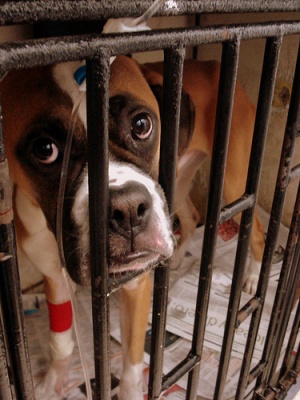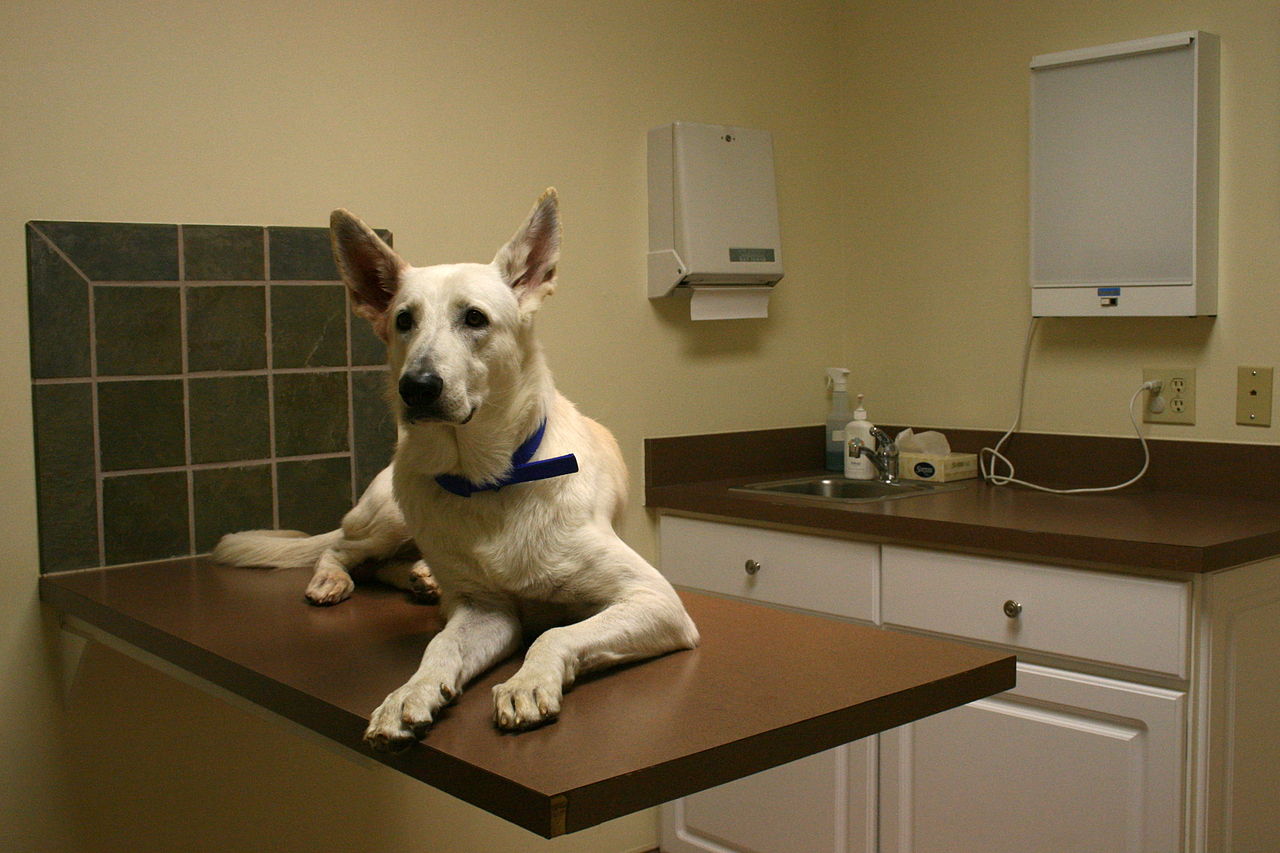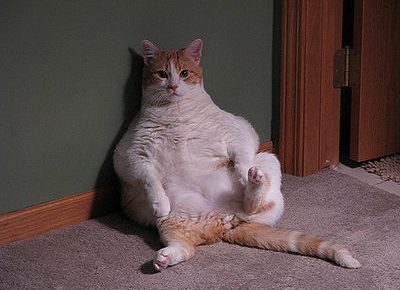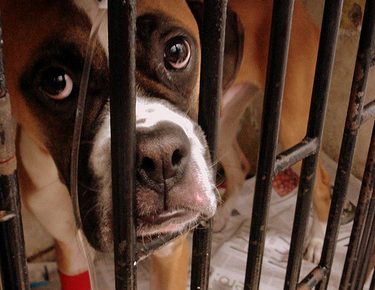
The esophagus is a muscular tube extending from the mouth to the stomach. Megaesophagus means enlarged esophagus. Humans, dogs, cats (rarely), ferrets and other animals can suffer from this disease.
Dogs suffering with megaesophagus will regurgitate their food. Regurgitation is not the same as vomiting, as it is undigested food that is expelled without retching.
Usually, when an otherwise healthy dog regurgitates, it can be a indication of an obstruction in the esophagus which is an emergency situation and should be seen by a veterinarian immediately. An obstruction can cause the esophagus to enlarge, similarly to a balloon. The result is regurgitation due to the inability of the muscles of the esophagus to contract and send food to the stomach for digestion.
Obstructions in the esophagus can be caused by foreign objects, a tumor, underlying diseases such as myasthaenia gravis, autoimmune diseases and so on.
Megaesophagus can be congenital (hereditary) or idiopathic (of unknown origin). In some cases congenital megaesophagus may eventually be outgrown. But the hereditary type may cause stunted growth due to lack of proper nutrition.
Symptoms can be regurgitation with no prior warning, loss of appetite, sudden weight loss, difficulty with or frequent swallowing, bad breath and often a mis-diagnosis of gastrointestinal problems.
There is a danger of aspiration pneumonia which is an inflammation of the lungs and airways when foreign materials (food, liquid, vomit) are breathed into the lungs or airways leading to the lungs. This is a very serious side effect.
Diagnosis is made with x-rays and ultrasound. The disease can be managed with care.
Foreign bodies can be removed with the use of an endoscope, but may require surgery. Medications such as antacids to reduce acidity and antibiotics to treat aspiration pneumonia or other resulting infections are prescribed. Food and water are given to a dog in an upright position which may require the use of a Bailey chair.
A Bailey Chair is a special chair that was designed and built by Donna and Joe Koch whose dog Bailey suffers with megaesophagus. Using this chair to vertically feed your dog allows him/her to receive the necessary nutrition for health using gravity as an aid and helps avoid aspiration pneumonia which can recur in dogs with megaesophagus. You can build your own Bailey Chair with Donna’s DVD through [email protected]. If you need assistance, please check with a carpenter in your area.
Dog breeds more prone to megaesophagus include German Shepherds, Golden Retrievers, Great Danes, Irish Setters, Greyhounds, Labrador Retrievers, Newfoundlands, Miniature Schnauzers, Chinese Shar-Peis, and Wire Fox Terriers.
Although rare in cats, Siamese and related breeds are somewhat prone to the disease.



